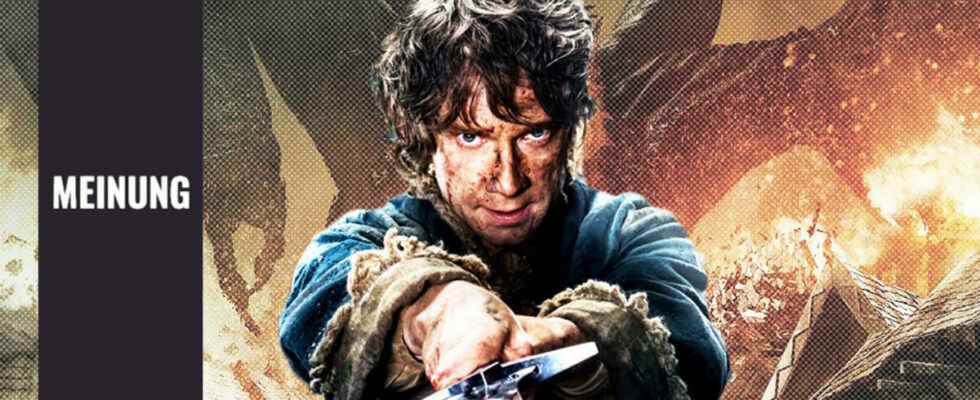The first Lord of the Rings series The Rings of Power starts today at Amazon. ProSieben shows the end of the Hobbit trilogy The Hobbit: The Battle of the Five Armies – without first broadcasting the first two parts, which is at least questionable from a programming point of view. TV dates: Friday 8:15 p.m. and Saturday 10:25 p.m.
Why was the Hobbit trilogy so disappointing?
The Hobbit trilogy started in 2012 with great expectations. After all, it followed the successful fantasy trilogy The Lord of the Rings, which set new standards in the genre and changed the blockbuster landscape. The Hobbit: An Unexpected Journey was warmly received.
With part 2 and at the latest with the final part 3, however, disillusionment spread among the fans. Why did the finale of the trilogy go so badly? And why was the whole trilogy so disappointing anyway? There are solid reasons for the medium-heavy disaster.
On TV today: The worst Lord of the Rings movie
The Lord of the Rings & The Hobbit – Trailer 4K UHD Boxes (German) HD
The Hobbit 3 grossed $962.2 million, even more than its predecessor The Hobbit: The Desolation of Smaug. The most successful film in the series is the premiere, The Hobbit: An Unexpected Journey. However, The Battle of the Five Armies by far the lowest rated film of the trilogy and thus also among the six parts of Middle-earth. Moviepilot scores 6.9, which puts the mighty finale 0.6 or 0.7 points below its comrades. A resounding slap in the face from the fans.
The Hobbit 3: The obvious reasons for the trilogy’s lousy conclusion
To explain Hobbit 3’s poor score, we must first look at the basic problems of the series watch the ones fans complain about the most:
Lord of the Rings low point: The not-so-obvious reasons for the lousy conclusion
In the bonus material of the films, director Peter Jackson goes into more detail about the causes that led to the fact that The Hobbit not a worthy successor of his revolutionary first Middle-earth trilogy. The films were under a bad star from the start.
Jackson had stepped in for original director Guillermo Del Toro at short notice. An absolute emergency solution. Jackson complained about…
The Lord of the Rings film still carefully matured Jackson. He worked 21 hour days.
It was impossible, and the result of this impossible state of affairs was that I started filming without having most of it prepared. I spent most of The Hobbit feeling out of control. The Hobbit 3 wants a Lord of the Rings Being a film – and that went so wrong
For the first time on Moviepilot: Lord of the Rings | The fellows
During the first two films, Jackson explains, he did reasonably well. In the finale, however, an element awaited that had not existed in the first two parts: the great battle, which is already announced in the title. Jackson took a break to clear his head, so the finale was 6 months late in cinemas.
In the first two films, he had that harmless events of the dwarf migration enriched with some smaller and sometimes bigger action scenes. They should raise the children’s book to the blockbuster level or Lord of the Rings level that the audience expected.
The fact that The Hobbit, although written by Tolkien, is not a Lord of the Rings is made abundantly clear in The Battle of the Five Armies. Because here Jackson is trying to do just that: to make The Hobbit a Lord of the Rings film. The project is expressed in an endless battle in which it is never really clear what it is all about and who is fighting whom. We see in the finale the opposite of the clear conflict over Helm’s Deep in The Two Towers.
To paraphrase Bilbo Baggins: Peter Jackson put too little butter on too much bread. There was just nothing more to tell in The Hobbit 3, nothing more to show. The whole trilogy is a gross creative miscalculation. In Part 3, it just becomes the most obvious.
a notice: We published this article in a similar form to a previous broadcast of The Hobbit 3.
*. . .
Overall, what do you think of the Hobbit trilogy?
